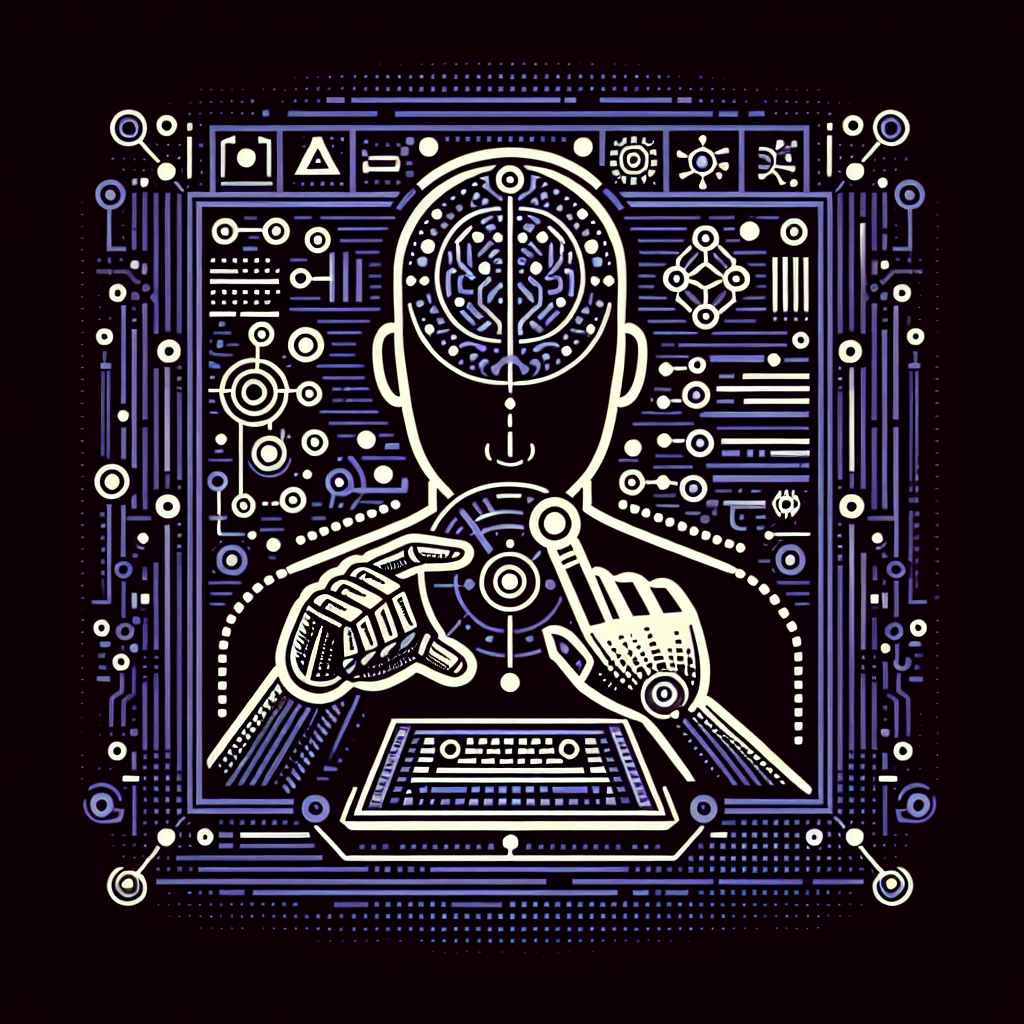Artificial Intelligence (AI) has been transforming the way we interact with technology in various aspects of our lives, and the gaming industry is no exception. AI has the potential to revolutionize the future of game interfaces, providing more immersive and personalized experiences for players. In this article, we will explore how AI is shaping the future of game interfaces and what we can expect in the coming years.
AI in Game Interfaces
AI has already made significant advancements in gaming interfaces, with the introduction of virtual assistants, personalized recommendations, and adaptive gameplay. Virtual assistants like Siri, Alexa, and Google Assistant have become common features in many games, providing players with helpful tips, hints, and even controlling certain aspects of the game. These virtual assistants use AI algorithms to understand player preferences and behaviors, providing a more personalized gaming experience.
AI-powered recommendation systems have also become a popular feature in many games, helping players discover new games, levels, and challenges based on their interests and gameplay history. These recommendation systems use machine learning algorithms to analyze player data and provide personalized suggestions, helping players find games that they will enjoy and keep them engaged.
Another significant development in game interfaces is the use of AI for adaptive gameplay. AI algorithms can analyze player behavior in real-time and adjust the difficulty level, pacing, and challenges of the game to provide a more personalized and engaging experience. This adaptive gameplay feature ensures that players are constantly challenged and entertained, leading to a more immersive gaming experience.
The Future of Game Interfaces
As AI continues to evolve and improve, we can expect to see even more innovative and advanced game interfaces in the future. Here are some of the potential developments that we can expect in the coming years:
1. Enhanced Personalization: AI will enable game developers to create more personalized and tailored experiences for players. AI algorithms will analyze player data, preferences, and behaviors to create unique gameplay experiences that cater to individual interests and skills.
2. Improved Immersion: AI-powered game interfaces will provide more immersive and realistic experiences for players. Virtual assistants, adaptive gameplay, and personalized recommendations will create a seamless and engaging gaming experience that keeps players immersed in the game world.
3. Real-time Feedback: AI algorithms will provide real-time feedback and suggestions to players, helping them improve their skills and performance. Virtual assistants will analyze player behavior and provide tips, hints, and strategies to help players overcome challenges and progress in the game.
4. Seamless Integration: AI-powered game interfaces will seamlessly integrate with other technologies and devices, providing a unified gaming experience across different platforms. Players will be able to switch between devices and continue their gameplay without any interruptions, thanks to AI-powered synchronization and optimization.
5. Enhanced Accessibility: AI will improve accessibility in gaming interfaces, making games more inclusive and accessible to players with disabilities. AI algorithms will provide assistive technologies, such as voice commands, gesture recognition, and adaptive controls, to help players with limited mobility or sensory impairments enjoy games.
FAQs
Q: How will AI improve the overall gaming experience for players?
A: AI will improve the overall gaming experience by providing personalized recommendations, adaptive gameplay, real-time feedback, and enhanced immersion. These features will create a more engaging and tailored gaming experience for players, keeping them entertained and challenged.
Q: Will AI-powered game interfaces replace traditional game interfaces?
A: AI-powered game interfaces will enhance traditional game interfaces by providing more personalized and immersive experiences. While AI will play a significant role in shaping the future of game interfaces, traditional interfaces will still be used alongside AI-powered features to provide a balanced and engaging gaming experience.
Q: How can game developers implement AI in game interfaces?
A: Game developers can implement AI in game interfaces by using AI algorithms and machine learning techniques to analyze player data, preferences, and behaviors. They can also integrate virtual assistants, recommendation systems, and adaptive gameplay features to create more personalized and engaging experiences for players.
Q: What are some potential challenges and limitations of AI in game interfaces?
A: Some potential challenges and limitations of AI in game interfaces include data privacy concerns, algorithm bias, and ethical considerations. Game developers must ensure that AI algorithms are transparent, fair, and unbiased to provide a positive and inclusive gaming experience for all players.
In conclusion, AI is set to revolutionize the future of game interfaces, providing more personalized, immersive, and engaging experiences for players. With advancements in virtual assistants, recommendation systems, adaptive gameplay, and real-time feedback, AI-powered game interfaces will create a new era of gaming that caters to individual preferences and skills. As AI continues to evolve and improve, we can expect to see even more innovative and advanced game interfaces that will redefine the way we play and interact with games.

